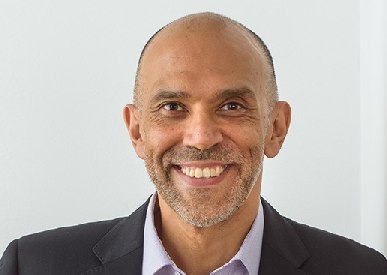Editor’s note: Moyez Jiwa, MD, founder of The Journal of Health Design, and The Health Design Podcast, believes that we can improve outcomes for patients as soon as today by simply paying attention to the small details that needlessly undermine those outcomes. In this excerpt from his book, The Art of Doctoring, Dr. Jiwa describes how the apparently ‘least qualified’ member of a doctor’s team can enhance the patient experience above and beyond their role as administrator and facilitator at front of house. Based in Melbourne, Australia, Dr. Jiwa is associate dean and professor of Health Innovation at the Melbourne Clinical School, University of Notre Dame. NOTE: This excerpt uses Australian spellings.
There are umpteen reasons why clinic reception counters are traditionally designed as described, the main one being to simplify payment processing. But other industries that perform similar administrative tasks are striving for better solutions rather than barricading patients and sending the wrong message.
Here’s an insightful comment from a ‘front of house’ staff member:
Our role has developed from “just scheduling staff” to a more complex, and crucial, role for any healthcare organisation. We are the start and end of every patient visit and also the start of the revenue cycle. In order for “customer service” to improve, an organisation must first recognise the importance of their Patient Access department and understand that their processes are directly related to the culture of the organisation.
Is it possible that patients who feel welcome will be more receptive to the professional advice on offer? Isn’t that what healthcare is all about? We’ve known this for decades. This published quote says it all:
The feeling in the practice when you arrive, busy. . .exhausted receptionists, people fed up, waiting, a feeling of dilapidation and stress. . .You can hear people being put off on the phone and you can hear ‘no no I can’t put you through to the doctor now,’ ‘no no you’ll have to call back’ and that makes you feel worse because you don’t want to call back at an inappropriate time.
The reception area creates circumstances where care outcomes are compromised. But there’s a better way, and at least one Australian practice has redesigned the experience. It has removed the reception desk and introduced desk-mounted iPads that allow patients to check in or make an appointment without having to bother the harassed ‘multitasking’ receptionist.
Patients will spend more time in the waiting room than anywhere else during their doctor visits. Waiting times for a 10-minute appointment can be 40 minutes or more at some clinics. So they spend more time interacting with the receptionist than they do with their health practitioner. The receptionist will:
- book their appointment
- greet them on arrival
- take their details
- offer them a seat
- let the medical team know if they need to be seen to ASAP
- check them out at departure.
And yet the word receptionists utter the most is “Sorry.”
“Sorry about the wait.”
“Sorry, we have no appointments available.”
“Sorry, the doctor’s running late.”
Receptionists and medical assistants are well-placed to let the team know when they’re failing their mission. But more importantly, they can:
- express empathy
- notice emergencies
- reduce risk (e.g. stop a child with chickenpox running around a waiting room full of soon-to-be mums)
- explain when expectations aren’t being met
- defuse complaints
- maintain a sense of calm and good humour when the practice is hectic
- embody discretion and confidentiality.
From the moment the patient comes into contact with the practice, receptionists can underline self-care messages and endorse what the medical team has to offer. Or they can severely compromise (if not destroy) any chance of achieving this.
Receptionists in many countries tend to be local residents (usually women), and often have little or no formal training in customer service. They’re frequently left to triage calls, deciding when a call is urgent enough to interrupt the doctor or determining when someone can be slotted into a busy schedule. And they will be the first to know whether a patient is satisfied or unhappy.
They may have been recruited after only a brief interview by the practice manager. They’ll have the fewest formal qualifications of anyone in the building, and be the lowest paid. And yet they’ll be privy to much of what the health professional will be told even before the patient enters the consulting room.
They will set the tone for each patient’s experience, and they’re well placed to trigger health behaviours in much the same way front-of-house staff can influence a customer’s experience in any other business.
The business of healthcare is based on efficiently generating claims for insurers or for government subsidies. There’s little or no incentive to provide anything more than a place where patients can access prescriptions or tests.
Some practices will offer minor operation services to remove skin lesions or implant contraceptive devices. And most funders will offer some sort of incentive to address chronic disease management, cancer screening and other health promotion activities.
But these payments made little difference in the way practices are organised overall, other than the traditional model described earlier. Patients will hear, see, smell, feel, and potentially taste things that will affect whether they can disclose important information about the reason for their visit.
But what patients hear is crucial, because it influences the way they’ll disclose what’s bothering them. The diagnosis, which underpins the treatment, is based on this information. So it’s important to consider what they hear during their doctor’s visit.
From The Art Of Doctoring, by Moyez Jiwa, published by Perceptive Press, copyright © 2020. Reprinted by permission of publisher.
Not a member of the Society? Please consider joining here: https://participatorymedicine.org/memberships/







YES. Receptionists really are the face of the office! Their jobs are so important.